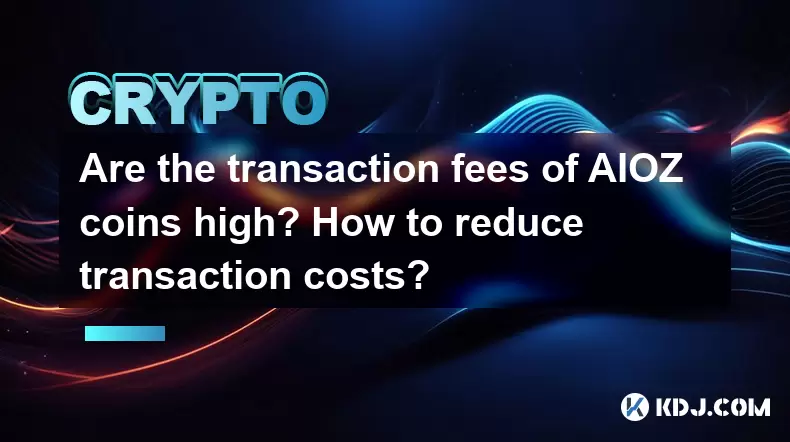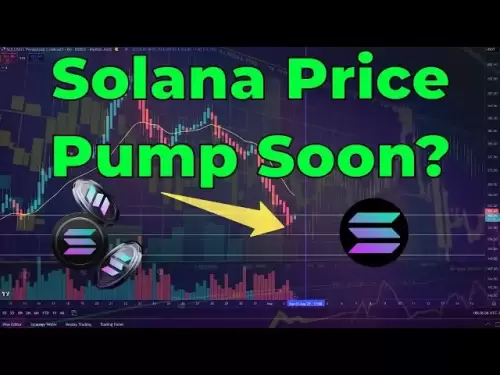-
 Bitcoin
Bitcoin $114000
0.88% -
 Ethereum
Ethereum $3484
1.43% -
 XRP
XRP $2.908
2.54% -
 Tether USDt
Tether USDt $0.0000
0.03% -
 BNB
BNB $750.7
0.89% -
 Solana
Solana $162.0
1.01% -
 USDC
USDC $0.9998
0.01% -
 TRON
TRON $0.3257
1.53% -
 Dogecoin
Dogecoin $0.1993
2.48% -
 Cardano
Cardano $0.7264
4.07% -
 Hyperliquid
Hyperliquid $38.33
2.79% -
 Stellar
Stellar $0.3986
7.87% -
 Sui
Sui $3.417
2.30% -
 Chainlink
Chainlink $16.24
3.45% -
 Bitcoin Cash
Bitcoin Cash $541.5
2.34% -
 Hedera
Hedera $0.2480
7.63% -
 Ethena USDe
Ethena USDe $1.001
0.05% -
 Avalanche
Avalanche $21.36
1.47% -
 Toncoin
Toncoin $3.631
0.03% -
 Litecoin
Litecoin $109.3
4.09% -
 UNUS SED LEO
UNUS SED LEO $8.954
-0.06% -
 Shiba Inu
Shiba Inu $0.00001220
2.91% -
 Polkadot
Polkadot $3.587
2.62% -
 Uniswap
Uniswap $9.139
3.54% -
 Monero
Monero $299.3
2.17% -
 Dai
Dai $1.000
0.01% -
 Bitget Token
Bitget Token $4.335
1.82% -
 Pepe
Pepe $0.00001044
3.27% -
 Cronos
Cronos $0.1336
4.99% -
 Aave
Aave $258.0
3.20%
Are the transaction fees of AIOZ coins high? How to reduce transaction costs?
AIOZ transaction fees are generally lower than Bitcoin and Ethereum, but users can further reduce costs by timing transactions and using layer 2 solutions.
May 21, 2025 at 03:00 am

The question of whether the transaction fees of AIOZ coins are high and how to reduce these costs is a common concern among users of the AIOZ Network. AIOZ Network is a decentralized platform that aims to bridge the gap between traditional internet and blockchain technology, and understanding its fee structure is crucial for users looking to optimize their transactions.
Understanding AIOZ Transaction Fees
AIOZ Network operates on a blockchain that uses a Proof of Stake (PoS) consensus mechanism. The transaction fees on the AIOZ Network are typically lower than those on networks that use Proof of Work (PoW) due to the reduced energy consumption and operational costs associated with PoS. However, the actual fee can vary based on several factors, including network congestion and the priority of the transaction.
To determine if AIOZ transaction fees are high, it's important to compare them to other cryptocurrencies. As of the latest data, AIOZ transaction fees are generally in the range of a few cents to a few dollars, depending on the size and complexity of the transaction. This places AIOZ in the mid-to-low range of transaction fees when compared to popular cryptocurrencies like Bitcoin and Ethereum.
Factors Affecting AIOZ Transaction Fees
Several factors influence the transaction fees on the AIOZ Network:
- Network Congestion: During periods of high network activity, transaction fees can increase as users compete to have their transactions processed more quickly.
- Transaction Size: Larger transactions, such as those involving multiple inputs or outputs, may incur higher fees due to the increased computational resources required to process them.
- Transaction Priority: Users can opt to pay higher fees to have their transactions processed more quickly, especially during times of network congestion.
Understanding these factors can help users better manage their transaction costs on the AIOZ Network.
Strategies to Reduce AIOZ Transaction Costs
There are several strategies that users can employ to minimize their transaction costs on the AIOZ Network:
- Timing Transactions: By monitoring the network's congestion levels, users can time their transactions to avoid peak periods when fees are typically higher. Tools and websites that provide real-time data on network congestion can be invaluable for this purpose.
- Batch Transactions: Combining multiple small transactions into a single larger transaction can reduce the overall fee. This is particularly useful for users who need to make multiple payments or transfers.
- Using Lower Priority: If a transaction does not need to be processed immediately, users can opt for a lower priority and pay a lower fee. This can significantly reduce costs, though it may result in longer processing times.
- Leveraging Layer 2 Solutions: AIOZ Network supports various layer 2 solutions that can help reduce transaction fees. These solutions process transactions off the main blockchain, thereby reducing the load and associated costs.
Practical Steps to Implement Cost-Saving Strategies
To effectively reduce transaction costs on the AIOZ Network, users can follow these practical steps:
- Monitor Network Congestion: Use tools like AIOZ Network's official explorer or third-party analytics platforms to keep an eye on current network congestion levels.
- Adjust Transaction Priority: When sending AIOZ coins, most wallets allow users to set the transaction fee. Choose a lower fee for transactions that are not time-sensitive.
- Batch Transactions: If you need to make multiple transactions, consider using a wallet that supports batching. This can often be done by selecting multiple recipients or inputs at once.
- Explore Layer 2 Solutions: Research and understand the layer 2 solutions available on the AIOZ Network. Some wallets may integrate these solutions directly, allowing users to opt-in for lower fees.
Using AIOZ Wallets to Optimize Fees
Different AIOZ wallets may offer varying levels of control over transaction fees. Here are some tips for using AIOZ wallets to optimize fees:
- Choose the Right Wallet: Some wallets, such as those designed for advanced users, offer more granular control over transaction fees. Research and select a wallet that aligns with your needs.
- Set Custom Fees: Many wallets allow users to set custom transaction fees. Experiment with different fee levels to find the optimal balance between cost and transaction speed.
- Stay Updated: Wallet software is frequently updated to include new features and optimizations. Keeping your wallet updated can help you take advantage of the latest cost-saving technologies.
Comparing AIOZ Fees to Other Cryptocurrencies
To provide a clearer perspective on AIOZ transaction fees, it's useful to compare them to other cryptocurrencies. Here's a brief comparison:
- Bitcoin: Bitcoin transaction fees can range from a few dollars to over $50 during peak congestion periods. This is significantly higher than AIOZ fees.
- Ethereum: Ethereum fees can be quite volatile, often ranging from a few dollars to tens of dollars, depending on network activity. AIOZ fees are generally lower than Ethereum's.
- Litecoin: Litecoin fees are typically lower than Bitcoin's but can still be higher than AIOZ fees, especially during peak times.
This comparison highlights that AIOZ fees are relatively competitive within the cryptocurrency space.
Frequently Asked Questions
Q: Can I use AIOZ coins for microtransactions without incurring high fees?
A: Yes, AIOZ coins are suitable for microtransactions. By using the strategies mentioned above, such as timing transactions during low congestion periods and opting for lower priority, users can minimize fees and make microtransactions cost-effective.
Q: Are there any specific AIOZ wallets that are known for offering better fee management options?
A: Some wallets that are known for their advanced fee management options include AIOZ's official wallet and certain third-party wallets like Trust Wallet and MetaMask. These wallets often allow users to set custom fees and offer features like batch transactions.
Q: How do AIOZ transaction fees compare to those of other decentralized finance (DeFi) platforms?
A: AIOZ transaction fees are generally lower than those of many DeFi platforms built on Ethereum, which can suffer from high gas fees. However, fees can vary based on the specific DeFi application and the network's current state.
Q: Can the AIOZ Network's governance decisions impact transaction fees?
A: Yes, governance decisions within the AIOZ Network can influence transaction fees. Changes to the protocol, such as updates to the consensus mechanism or the introduction of new features, can affect the cost of transactions. Staying informed about network developments can help users anticipate potential fee changes.
Disclaimer:info@kdj.com
The information provided is not trading advice. kdj.com does not assume any responsibility for any investments made based on the information provided in this article. Cryptocurrencies are highly volatile and it is highly recommended that you invest with caution after thorough research!
If you believe that the content used on this website infringes your copyright, please contact us immediately (info@kdj.com) and we will delete it promptly.
- Punisher Coin Presale: Your Ticket to 100x Gains in 2025?
- 2025-08-04 00:50:14
- BlockchainFX: The Next Crypto Millionaire Maker After BNB and Tron?
- 2025-08-04 01:10:14
- XRP: Crypto Analyst's Smartest Buy in 2025?
- 2025-08-04 00:30:13
- SEC, Crypto Regulation, and Digital Assets: A New Era?
- 2025-08-04 00:30:13
- Navigating the Meme Coin Mania: Cold Wallets, SHIB, and DOGE in 2025
- 2025-08-03 22:30:16
- Bitcoin's Price Fall and Scrutiny: What's a New Yorker to Think?
- 2025-08-03 22:30:16
Related knowledge

What is Chainlink (LINK)?
Jul 22,2025 at 02:14am
Understanding Chainlink (LINK): The Decentralized Oracle NetworkChainlink is a decentralized oracle network designed to bridge the gap between blockch...

What is Avalanche (AVAX)?
Jul 22,2025 at 08:35am
What is Avalanche (AVAX)?Avalanche (AVAX) is a decentralized, open-source blockchain platform designed to support high-performance decentralized appli...

What is Polkadot (DOT)?
Jul 19,2025 at 06:35pm
Understanding the Basics of Polkadot (DOT)Polkadot (DOT) is a multi-chain network protocol designed to enable different blockchains to transfer messag...

What is Litecoin (LTC)?
Jul 23,2025 at 11:35am
Overview of Litecoin (LTC)Litecoin (LTC) is a peer-to-peer cryptocurrency that was created in 2011 by Charlie Lee, a former Google engineer. It is oft...

What is Monero (XMR)?
Jul 21,2025 at 10:07am
What is Monero (XMR)?Monero (XMR) is a decentralized cryptocurrency designed to provide enhanced privacy and anonymity for its users. Unlike Bitcoin a...

How to add indicators to Ethereum chart on TradingView?
Jul 19,2025 at 07:15am
What Is an Ethereum Chart on TradingView?The Ethereum chart on TradingView is a visual representation of the price movement of Ethereum (ETH) over a s...

What is Chainlink (LINK)?
Jul 22,2025 at 02:14am
Understanding Chainlink (LINK): The Decentralized Oracle NetworkChainlink is a decentralized oracle network designed to bridge the gap between blockch...

What is Avalanche (AVAX)?
Jul 22,2025 at 08:35am
What is Avalanche (AVAX)?Avalanche (AVAX) is a decentralized, open-source blockchain platform designed to support high-performance decentralized appli...

What is Polkadot (DOT)?
Jul 19,2025 at 06:35pm
Understanding the Basics of Polkadot (DOT)Polkadot (DOT) is a multi-chain network protocol designed to enable different blockchains to transfer messag...

What is Litecoin (LTC)?
Jul 23,2025 at 11:35am
Overview of Litecoin (LTC)Litecoin (LTC) is a peer-to-peer cryptocurrency that was created in 2011 by Charlie Lee, a former Google engineer. It is oft...

What is Monero (XMR)?
Jul 21,2025 at 10:07am
What is Monero (XMR)?Monero (XMR) is a decentralized cryptocurrency designed to provide enhanced privacy and anonymity for its users. Unlike Bitcoin a...

How to add indicators to Ethereum chart on TradingView?
Jul 19,2025 at 07:15am
What Is an Ethereum Chart on TradingView?The Ethereum chart on TradingView is a visual representation of the price movement of Ethereum (ETH) over a s...
See all articles

























































































